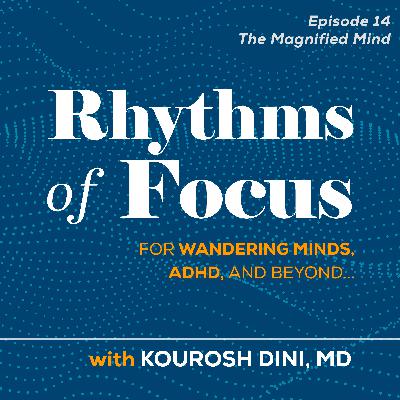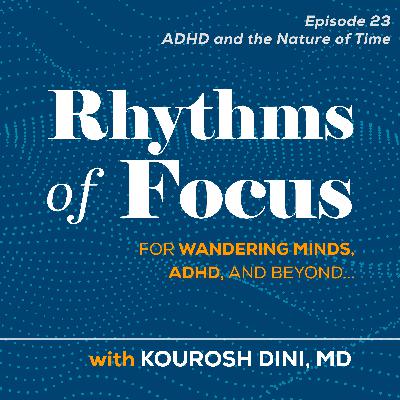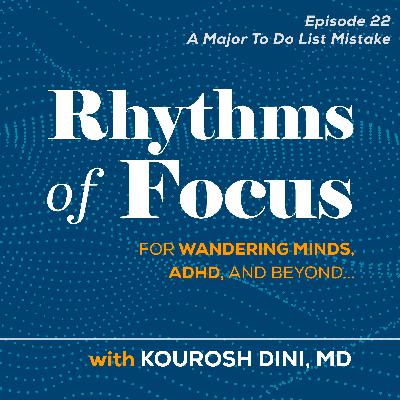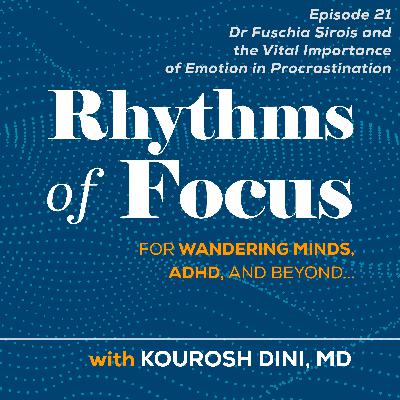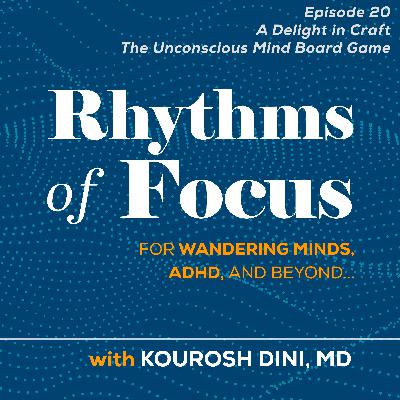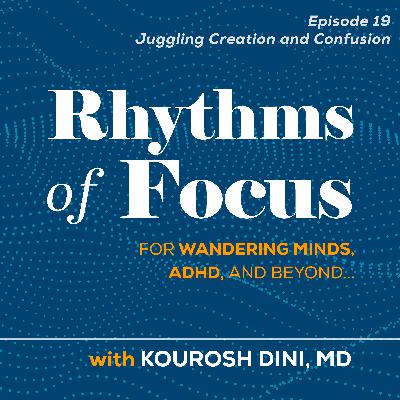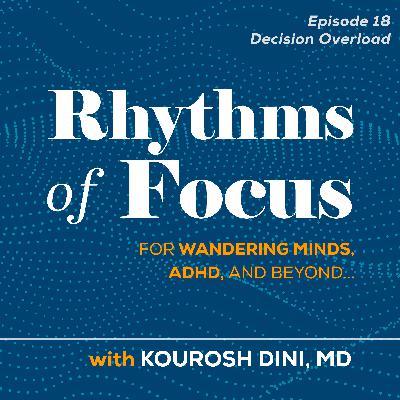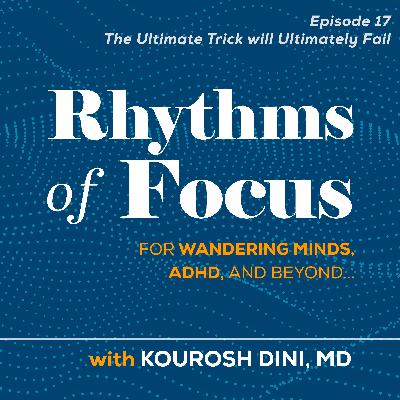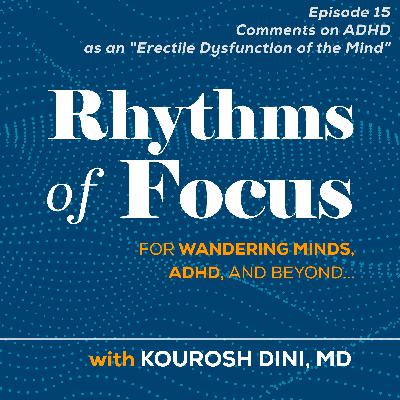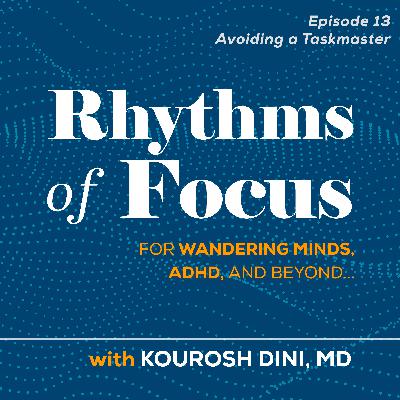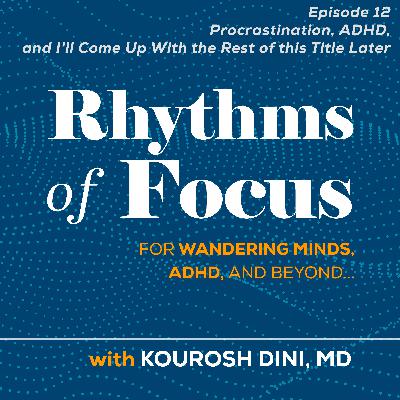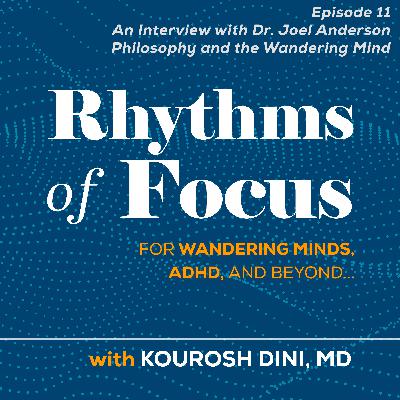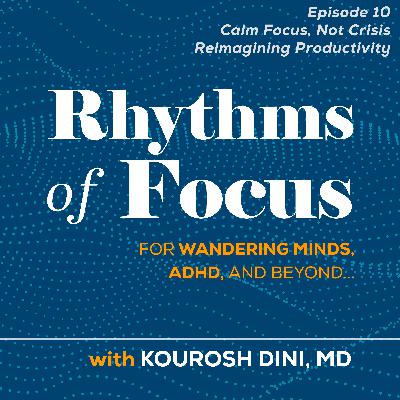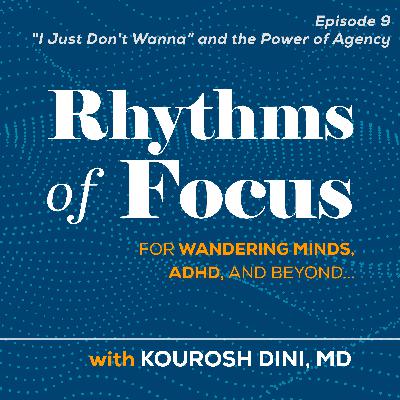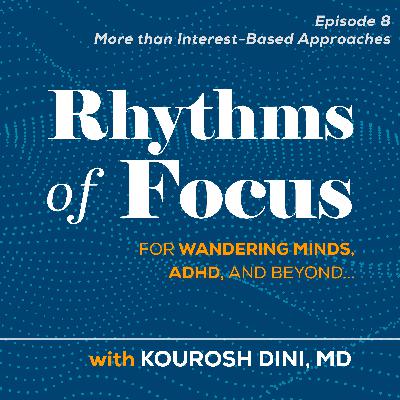The Magnified Mind
Description
This episode delves into the intricate nature of the wandering mind, exploring the complexities of attention, focus, and the diverse manifestations of ADHD. It challenges the traditional objectivist approach in scientific inquiry, emphasizing the value of human experience, metaphor, and emotion in understanding mental processes. The narrative presents a metaphor comparing the lens of an eye to the lens of consciousness, illustrating how mental wanderings impact focus and productivity. Additionally, it discusses the role of short-term and working memory and the emotional bed of consciousness. The episode concludes with practical insights for managing a wandering mind and a musical improvisation piece that embodies the themes discussed.
00:00 Open
03:33 An Appeal to Human Experience
07:52 A Metaphor of the Eye's Lens
11:36 The Lens of Consciousness
15:16 A Return of The Now and Not Now
16:02 The Vitality of Emotion
18:18 Bringing it Together
25:57 An Improvisation
Rhythms of Focus – Episode 14 Show Notes
The Magnified Mind: Metaphors for Wandering, Focus, and Emotional Depth
Welcome, fellow wandering minds! In this episode, we set sail through the complexities of attention, memory, and emotion—exploring how the wandering mind, so often misunderstood, can be a source of both challenge and creative strength. Below you’ll find references, resources, and further reading to deepen your journey.
Key References & Further Reading
ADHD, Neurodiversity, and Focus Variability
- ADHD Types & Neurodiversity:
- CHADD: Understanding ADHD Types
- ADDitude Magazine: ADHD Presentations
Science, Measurement, and Human Experience
- Objectivism in Psychology:
- E.L. Thorndike and Measurement in Psychology
- Quote from Dr. Frank Summers, The Psychoanalytic Vision:
- Book Information
Neuroscience of Attention
- Task Positive Network vs. Default Mode Network:
- ScienceDirect: Brain Networks
- Neurotransmitters & Attention:
- Verywell Mind: Dopamine, Norepinephrine, Serotonin
- Short-Term & Working Memory:
- George Miller’s “The Magical Number Seven, Plus or Minus Two”
Emotion, Consciousness, and Motivation
- Neuropsychoanalysis & Mark Solms:
- Mark Solms, The Conscious Id
- International Neuropsychoanalysis Society
Practical Tools for Agency & Focus
- The Anchor Technique & Session Pad:
- Waves of Focus: Anchor Technique
- Session Pad & Honor Guide
Artists Who Paint Beyond Sight
- Bianca Raphaella:
- Bianca Raphaella’s Art
- Esref Armagan:
- Esref Armagan Profile
Musical Improvisation & Structure
- Improvisation in Music:
- Music & Podcast Archive
- What Is Musical Improvisation?
Featured Tools from Waves of Focus
- The Anchor Technique:
- A practical, pen-and-paper approach to regaining agency and clarity in moments of overwhelm or distraction. Learn more and access exercises.
- Session Pad & Honor Guide:
- Structures to help carry momentum and maintain a gentle rhythm between focus and rest. Explore the system.
Mentioned Metaphors & Concepts
- The Lens of Consciousness:
- Seeing attention as a shifting lens—sometimes magnified, sometimes blurry—mirrors the lived experience of focus and forgetfulness.
- Agency as Sailing:
- Agency is a boat navigating a sea of emotions, learning to tack and use the winds of emotion to guide, rather than fight.
- Improvisation:
- Mastery grows from playful exploration, much like improvising music within a framework of learned fundamentals.
Episode Music
This episode closes with “Meandering Improv in E-Flat,” a spontaneous piece that mirrors the episode’s theme of wandering, discovery, and playful structure. Listen to more original music.
Want to Go Deeper?
- Waves of Focus Course:
- For a step-by-step guide to building your own rhythms of focus, agency, and creative mastery, explore the Waves of Focus course.
- Newsletter:
- Subscribe for more insights, metaphors, and practical tools for wandering minds.
Thank you for joining me on this voyage. May your focus be as gentle and resilient as a boat riding the waves—and may you discover new strengths in the very places your mind tends to wander.
If you found this episode helpful, please share it with a friend or leave a review. Your voice helps others find their rhythm, too.
Transcript
There are those times where we can dive deep into that one thing, engaged in this wonderful flow gathering and holding on to multiple ideas, pulling that from there and this from here, and sometimes remembering that some obscure thought from some seeming random other field of knowledge.
And then we discover this new idea and the connection and, uh,
"Why did I come into this room again?"
How can it be so easy to lose touch with something that seems so important from only a few moments ago? What's going on?
A wandering mind's complexities can seem staggering.
There are many forces, paths, spirits that can lead to those familiar meanderings from the tightly wound, the anxious, the hurt, the confused, the lost, the misunderstood to the deeply curious, the brilliant, the wonderfully artistic.
The very poster child of focus struggles, ADHD, has its own multiple variations. Some struggle with constantly messy environments while others are impeccably clean. Some are never on time, while others are obsessively early. Some can hardly string actions together into any form of habit while others clutch dearly to routine.
What singular idea could ever describe these variations?
We already have so many perspectives: psychological, biological, social, the motor, the mental, the interpersonal, brain anatomy, task positive network versus default mode network, ideas of the neurodivergent versus neurotypical, neurotransmitters of dopamine, norepinephrine, serotonin, the neural pathways between.
And here I am trying to throw another perspective on the pile. Why? Well, because mine's right, of course. But uh. Well, joking aside, I do think it's one worth playing with. I'll be making a few stops in this journey, this argument, pulling into port here or there.
But first we'll be looking at the nature of how we view science itself. A bit of a stepping back. Then, I'll describe a metaphor, get into a bit about time, emotion, and finally bring it all together. So hang onto your proverbial hats here as I hope to string a few meanderings into some central meaning.
Kindly, uh, wish your captain here, good luck as we make this voyage.
An Appeal to Human Experience
The first stop is a rather abstract one. But it is also a vital one, I believe.
I'd like to present this different perspe

